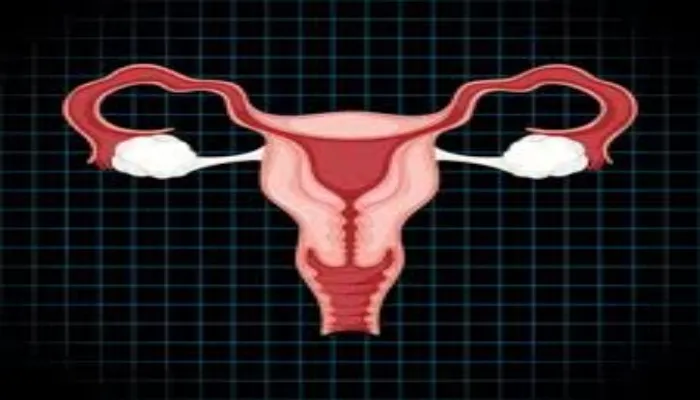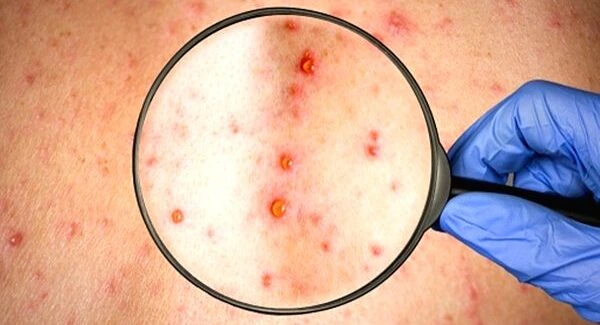PCOD: Causes, Symptoms, Treatment, and Curability in Women

Posted Date: April 23rd, 2024
Polycystic Ovary Syndrome (PCOS) is a common hormonal disorder affecting women of reproductive age. It is characterized by irregular menstruation, cysts in the ovaries, and hormonal imbalances. PCOD is a complicated condition with meaning beyond reproductive health, impacting metabolic and cardiovascular health as well. Understanding PCOD meaning, causes, symptoms, and other aspects is necessary for effective management and improved quality of life for those affected with this condition! So, what are you waiting for? Read on to know more!
See also
What is PCOD problem in females?
PCOD full form is Polycystic Ovary Disorder, is a hormonal disorder prevalent among women of reproductive age. Due to hormonal imbalances, this is characterized by the presence of small cysts on the ovaries. These imbalances affect the normal ovulation process and leading to irregular menstrual cycles and potential difficulties in conceiving.
What are the common causes of PCOD problem?
As we said earlier, Polycystic ovary disease is related with hormonal imbalance in the reproductive hormones. However, there are many causes of PCOD problem that should be considered:
1. Genetic factor: Genetic factors play an important role in influencing women to PCOD. Some individuals with a family history of the disorder are at higher risk.
2. Insulin Resistance: It means where cells fail to respond effectively to insulin, is closely related to PCOD. Elevated insulin levels stimulate androgen production, contributing to hormonal imbalance.
3. Hormonal Imbalance: PCOD involves disturbance in hormonal levels that increased androgen production (male hormones) and irregularities in estrogen and progesterone levels.
4. Lifestyle Factors: Poor dietary habits, obesity, and other lifestyle factors can also affect the imbalances and insulin resistance that directly contribute to the development of PCOD.
5. Inflammation: Chronic low-level inflammation may also affect the progression of PCOD and impact the ovarian function and hormone production.
6. Environmental Factors: Risk to certain environmental toxins and endocrine-disrupting chemicals may influence hormonal balance and can be reason behind the PCOD.
What are the symptoms of PCOD?
It is very important to understand the symptoms of PCOD so you can immediately get treatment of it. Some common PCOD symptoms include:
1. Irregular Menstrual Cycles: PCOD Women often experience irregular periods, including prolonged or absent menstrual cycles.
2. Excessive Hair Growth: PCOD can cause hirsutism which results in excessive hair growth on the face, chest, back, or other areas where men grow hair.
3. Acne: As PCOD associated with hormonal imbalances, can lead to persistent acne breakouts. This acne can be particularly along the jawline, chin, and cheeks.
4. Weight Gain: PCOD women generally struggle with weight gain or find it difficult to lose weight, especially around the abdomen area.
5. Hair Loss: Though hair loss on the scalp, known as female pattern baldness related with PCOD can occur due to hormonal imbalance.
6. Mood Swings: Fluctuations in hormone levels can contribute to mood swings, anxiety, and depression in PCOD women.
7. Fertility Issues: PCOD is a common cause of infertility issues that make difficulty for women who want to conceive due to irregular ovulation.
What are the treatment options available for PCOD problem?
PCOD treatment involves both lifestyle changes as well as medications and they are:
1. Lifestyle Modifications: By following a healthy lifestyle including regular exercise, balanced diet, and stress management can improve hormonal balance.
2. Oral Contraceptives: Contraceptive pills contain estrogen and progestin that can regulate menstrual cycles, reduce androgen levels, and alleviate symptoms such as acne and hirsutism.
3. Medications of Anti-androgen: Medications that block the effects of androgens can be helpful for one who is diagnosed with PCOD.
4. Insulin-sensitizing Agents:Obesity is one of the major causes of PCOD. Drugs like metformin can improve insulin sensitivity, helping to regulate menstrual cycles and reduce the risk of metabolic complications.
5. Ovulation Induction: Fertility medications such as clomiphene citrate or letrozole may be prescribed to induce ovulation in women who want to conceive.
6. Surgery: Surgical procedures like ovarian drilling may be considered to restore ovulation in PCOD where other treatments are ineffective.
How to diagnose PCOD problem?
There are many ways to diagnose PCOD problem some of them are:
1. Medical History and Physical Examination: It includes pelvic examination that is essential for diagnosing PCOD. The healthcare provider will discuss your menstrual history and any other relevant medical conditions.
Blood Tests: Hormonal tests measure levels of various hormones, including androgens, estrogen, progesterone, and insulin, to identify hormonal imbalances.
2. Ultrasound: Transvaginal ultrasound is performed to visualize the ovaries. PCOD ovaries typically have a characteristic presence with multiple small cysts, aiding in the diagnosis of PCOD.
3. Pelvic Laparoscopy: In some rare cases, an invasive surgical procedure called laparoscopy may be performed to visualize the ovaries and confirm the diagnosis of PCOD.
4. Other Tests: Other tests may be performed to manage metabolic parameters, such as glucose tolerance tests and lipid profiles, to assess the risk of metabolic complications related with PCOD.
What complications PCOD problem can arise?
There are some complications associated with PCOD you should consider:
1. Infertility: Irregular ovulation and hormonal imbalances that is related with a PCOD can make it difficult for women to conceive.
2. Type 2 Diabetes: Insulin resistance and obesity in PCOD women can increase the risk of developing type 2 diabetes later in life.
3. Cardiovascular Disease: PCOD is interrelated with an increased risk of cardiovascular disease such as hypertension, dyslipidemia, and coronary artery disease.
4. Sleep Apnea: Obesity and hormonal imbalances related with PCOD can contribute to the development of obstructive sleep apnea.
Depression and Anxiety: Hormonal imbalances and the psychosocial impact of PCOD can lead to mood swings including depression and anxiety.
Gestational Diabetes: During pregnancy, PCOD women have an increased risk of developing gestational diabetes, which can lead to complications for both the mother and the baby.
The Bottom Line
In summary, PCOD is a complex hormonal disorder that can affect the reproductive health of women. Women who are affected by this condition may face issues with conceiving. Early diagnosis, lifestyle modifications, and appropriate medical interventions are crucial for improving the overall quality of life for PCOD women. Contact your healthcare provider if you find any above-mentioned symptoms of PCOD. Share your thoughts with us through the comment section below.
FAQS
QUES 1: Can PCOD be cured permanently?
ANS: No, PCOD cannot be cured permanently. However, the symptoms can be managed through lifestyle changes and medical involvement effectively.
QUES 2: Is PCOD is a serious problem?
ANS: Yes, PCOD is a serious problem as it can lead to various complications such as infertility and metabolic disorders, etc.
QUES 3: Can I get pregnant with PCOD?
ANS: Yes, you can get pregnant with PCOD, but it may require medical assistance to increase the conception chances.
QUES 4: How long does it take to recover from PCOD?
ANS: There’s no fixed duration for PCOD recovery as it varies depending on individual factors and treatment effectiveness.
Related Posts
Dr. Emily Carter is a seasoned health writer and wellness advocate at Healths News Today. With over a decade of experience in the healthcare industry, she specializes in translating complex medical information into easy-to-understand content that empowers readers to make informed decisions about their health.




